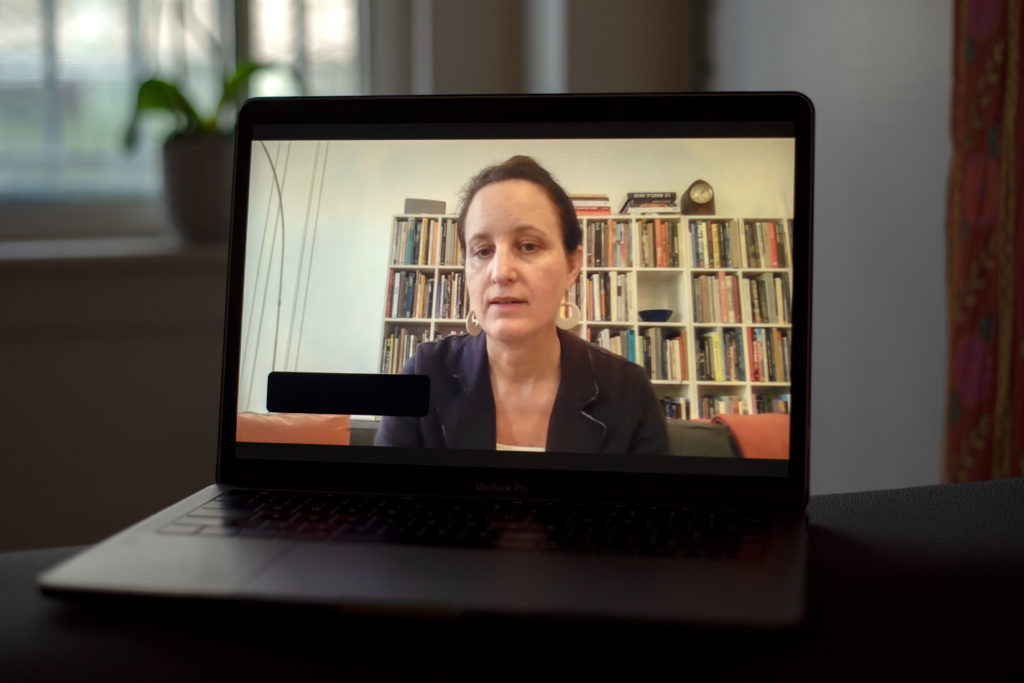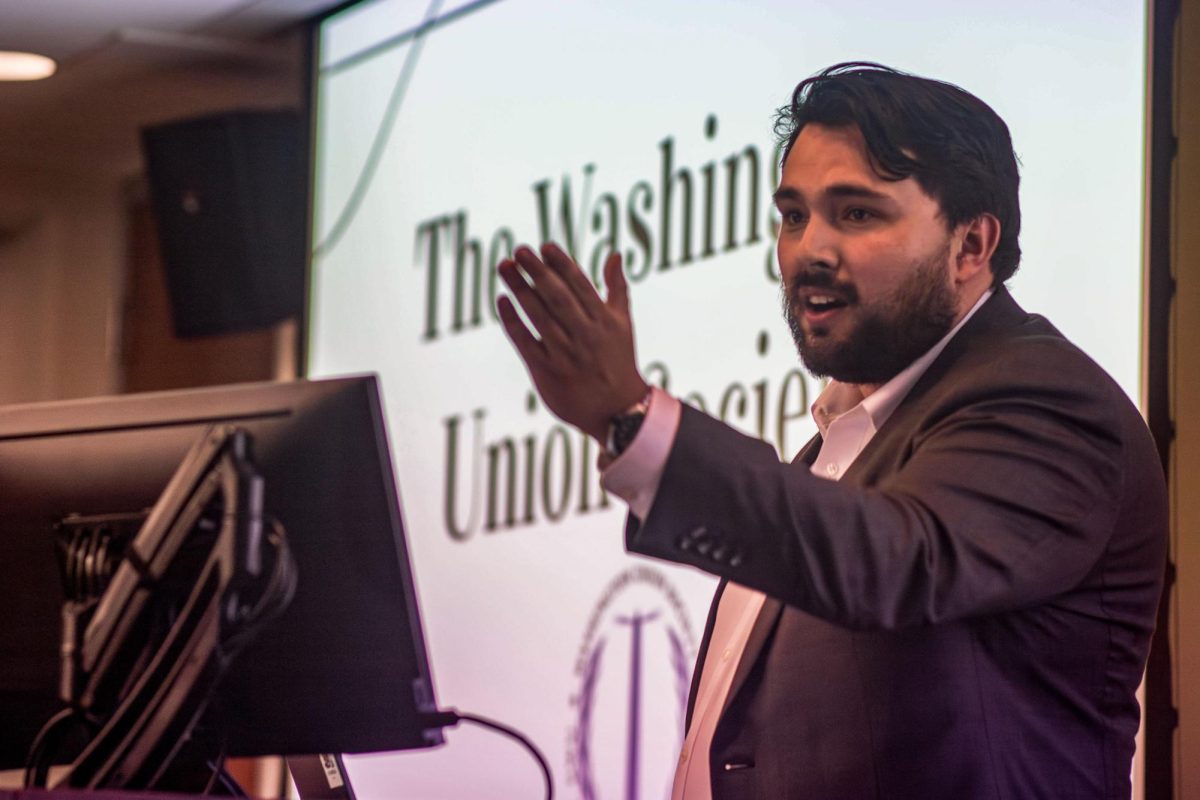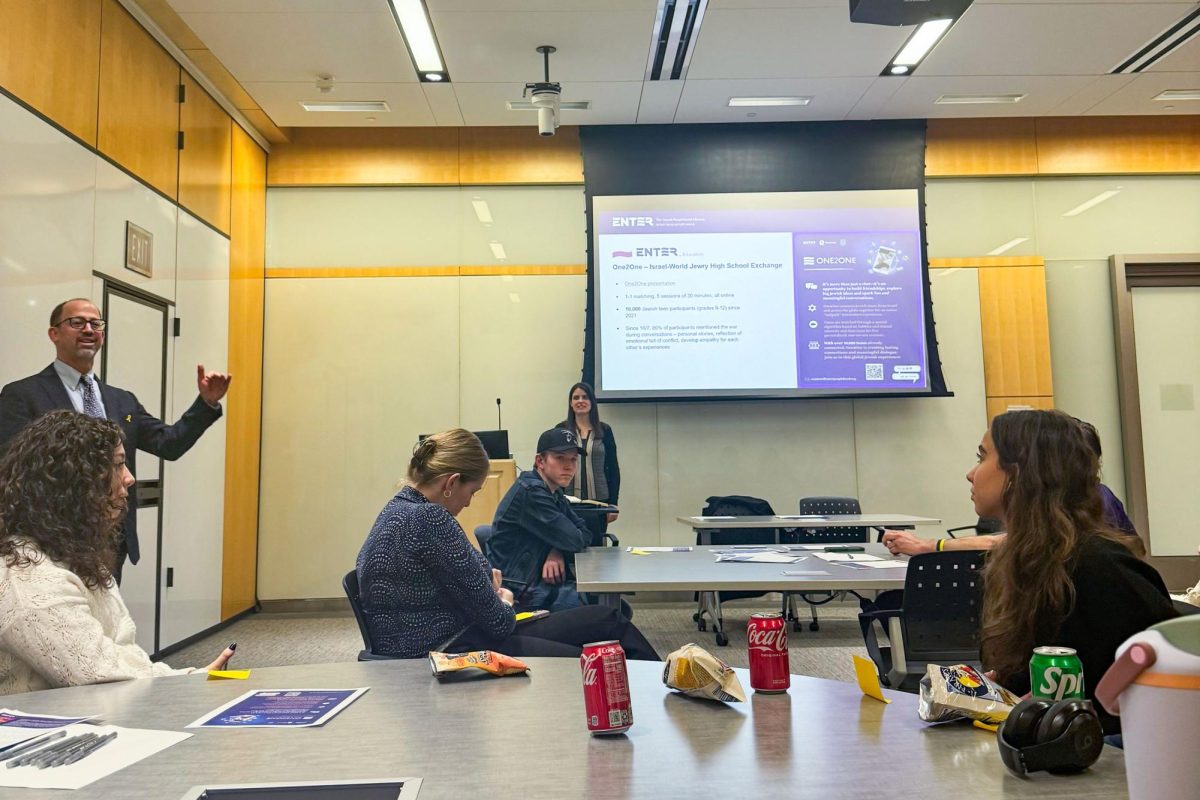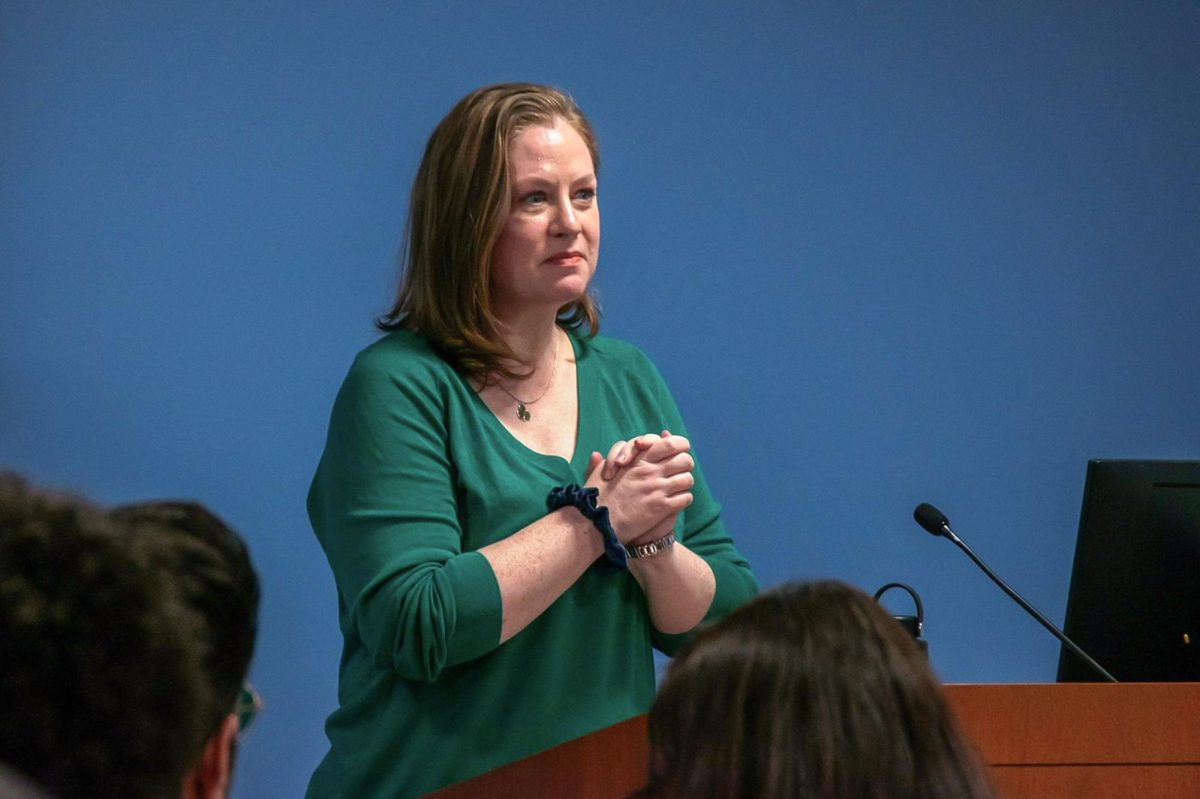A history professor at the University of Pennsylvania, spoke about the importance of truth in democracy at an online webinar hosted by the GW Humanities Center Tuesday.
Sophia Rosenfeld discussed the need to combat misinformation and find common truths in modern democratic societies during the event, which Humanities Center directors and GW professors Jamie Cohen-Cole and Lynn Westwater moderated. Rosenfeld said narratives like the “Big Lie” – a theory propagated by supporters of former President Donald Trump alleging that the results of the last presidential election are illegitimate – continue to pervade various aspects of society despite being exposed as false multiple times.
“Truth is having a pretty difficult time in public life these days and in democracies more generally,” she said.
Rosenfeld said social media gives users the power to both spread and consume misinformation. She added some users elevate figures who share their worldview regardless of the accuracy of their punditry.
“Some people just want to win at all costs, truth be damned,” she said. “And many people, more heavily on the right these days, but once more often on the left, if we think back to the ’60s and the era of the Vietnam War, have come to see everything that establishment culture touts as a fact is actually a matter of opinion or spin.”
Rosenfeld said individuals have weaponized the term “fake news” as a partisan expression and a catch-all term to describe select perspectives on the truth. She said the Myanmar government used the term to deny reports it was committing genocide against its Muslim population over the past several years, and it contributed to anti-immigrant rhetoric in Europe and the conflict between Russia and Ukraine.
“I asked, how did we get to this point? How did the marriage of democracy and truth, which looks so good from the outside, go so astray?” Rosenfeld said. “That’s actually the kind of question that especially interests me even if it sounds very abstract.”
Rosenfeld said of all the political systems, democracy in uniquely dependent on truth because it is designed to be clear and transparent.
“People would not need to agree on everything, including religious teachings, but established truths, including basic moral and factual ones, which serve as a starting point for public deliberation,” she said.
Rosenfeld said a trend is emerging where the definition of truth is now a partisan issue.
“In a way, we might be able to say that the very open-endedness built into modern democracy from the start, including this idea of free speech has come full circle in this particular moment in time to undermine democracy itself,” she said.
Rosenfeld said authorities should focus on regulating misinformation by imposing real financial penalties against misinformation, building more educational institutions like libraries and schools to educate the public and establishing common facts to guide public discourse.
“It’s hard for democracy to survive without much by way of a common culture,” she said.








